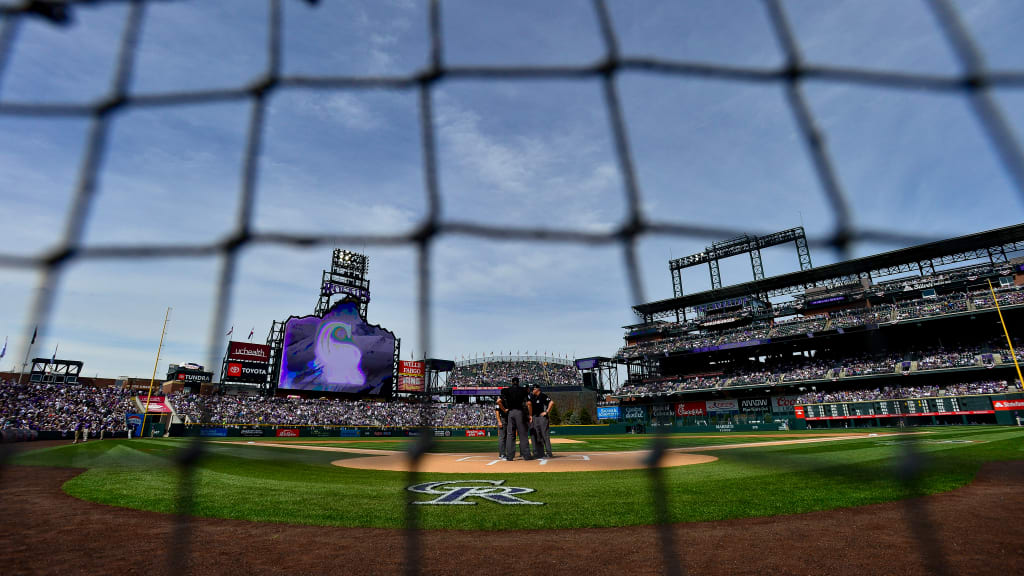
SCOTTSDALE, Ariz. -- Major League Baseball canceled the remainder of Spring Training on Thursday and announced that the start of the 2020 season will be delayed by at least two weeks because of the national emergency created by the coronavirus pandemic.
A statement from the Rockies said, “The Colorado Rockies fully support Major League Baseball’s decision to suspend Spring Training games and postpone Opening Day by at least two weeks in an effort to limit the spread of the coronavirus. Our top priority will always be the health and safety of our fans, players, coaches and employees, and we will continue to work alongside the league and public health experts to determine next steps.”
Here’s what we know following MLB’s action:
When will the season start?
There is no official start date for the season at this time. What we do know is that the start of the season will be delayed at least two weeks. Opening Day had been scheduled for Thursday, March 26.
MLB will continue to evaluate ongoing events leading up to the start of the season. Guidance related to daily operations and workouts will be relayed to all 30 clubs in the coming days.
How will the schedule change to accommodate the late start?
According to the release sent by MLB, the league and teams have been preparing a variety of contingency plans regarding the 2020 regular-season schedule. MLB will announce the effects on the schedule at an appropriate time and will remain flexible as events warrant, with the hope of resuming normal operations as soon as possible.
What’s going to happen with the rest of Spring Training?
Forthcoming Spring Training games were canceled as of 2 p.m. MT on Thursday, and 2020 World Baseball Classic qualifying games scheduled in Tucson, Ariz., were postponed indefinitely.
What about Minor League Baseball?
Minor League Baseball announced Thursday that the start of its regular season, originally scheduled for April 9, will be delayed indefinitely.
Where will players go?
For now, they will stay in Scottsdale. No one will be around Friday, and the team will have optional workouts Saturday and Sunday, with the hope that more information will become available in the interim.
“We’ve been advised, at least for right now, from the league and from the [Major League Baseball Players Association] to kind of stick around, see what happens,” relief pitcher Scott Oberg said.
Manager Bud Black said he and the coaches will work with the players. Black, general manager Jeff Bridich and some of the coaches are putting together a workout plan for the next week.
I have tickets to the home opener -- what does this mean for me? What about tickets to other games?
The short answer is it’s too early for an answer. The Rockies addressed such questions in their statement:
“We understand fans have many questions, and we are working through all of the effects of this announcement on everything from ticketing to ballpark operations. We will use our social media platforms and Rockies.com to communicate our policies and procedures as soon as we are able, updating as necessary along the way. These are unprecedented times, and circumstances may change by the hour. So we thank you for your patience, and we wish you and yours the best of health during this difficult time.”
How might this affect the Rockies once play resumes?
Black was a pitcher for the Indians when the 1994 season was ended and the ’95 season was delayed and shortened to 144 games because of a labor dispute. The ’95 season turned out to be his last. He was released with a 6.85 ERA and a sore elbow. Black said the three-week Spring Training was enough for batters and relief pitchers, but it taxed starting pitchers.
So he has perspective.
“There will be a little halt in some throwing programs and some pitcher pitch counts,” Black said. “Position player-wise? Fine. If you look at the big picture for position players, physically and mentally, they’ll be fine once we get to a hard target. The pitching staff and, most importantly, the starting pitchers, that’s where it’s going to impact.
“I’m sure baseball will give clubs plenty of time to get their pitchers in order.”
Starting pitcher Jon Gray said it’s not just the pitch count but the mental approach that has been challenged.
“It’s weird because things start building up about right this time right now,” he said. “It's starting to feel like you know, we're in that transition [from Spring Training to the regular season], but it's just really dead. It’s tough because you can’t check out.”
There are some specific health concerns with a couple players.
Outfielder David Dahl had his spleen removed after an on-field collision in 2015.
“Me, without a spleen, it’s a little tougher,” Dahl said. “But I have all of my immunizations, as far as the flu shot and all of that. I’ve got what I need, so I’m trying not to worry about it too much.”
Oberg’s 2019 season was shortened because of surgery to remove blood clots from his right arm.
“I have reached out to my doctors back home for advice, so I'm still waiting to hear back from them,” he said. “But I'm just going to continue to wash my hands and do all things from the CDC. I’ll follow some of the guidelines that have been out there to a tee.”
What are they saying?
Pitcher Kyle Freeland: “Our trainers have been on top of making sure we're being smart, washing our hands more times than you’re used to, making sure you're using hand sanitizer, making sure you're not touching other people's stuff. We're just being as smart as we can.”
